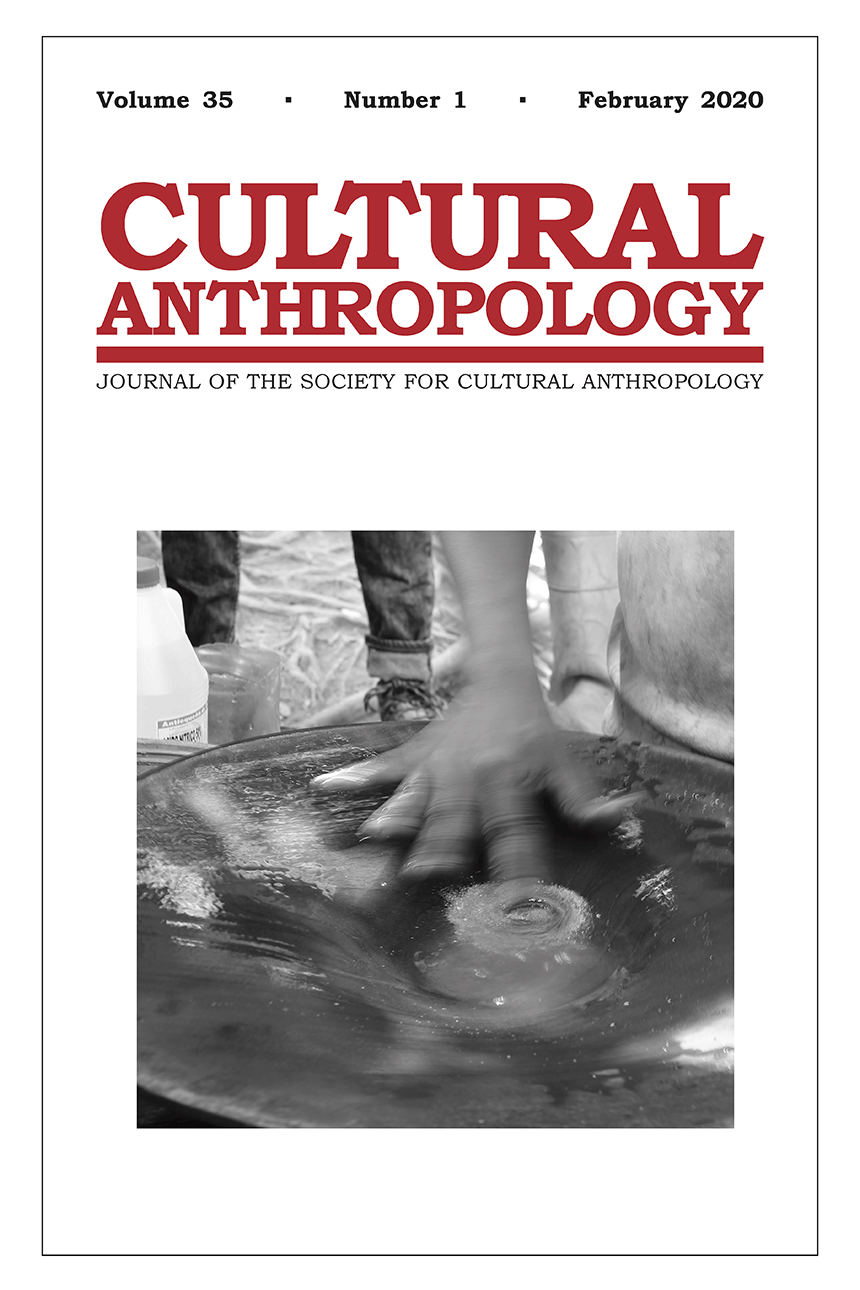
The first Cultural Anthropology issue of 2020 features five original research articles, as well as our first edition of a new feature, Colloquy. Colloquy collections are intended to take the form of a conversation in which different vantage points are explored and debated on a shared theme or concept. “Gestures of Care and Recognition” brings together a series of essays by Lauren Cubellis, Lisa Stevenson, Ken MacLeish, Michele Lancione, and Zoë Wool. In these provocative discussions, each of the authors grapples with the theoretical uncertainty and representational challenges in the ethnographic encounter with care.
The research essays begin with Pablo Jaramillo’s rich exploration of the remains of gold mining in a Colombian town. Jaramillo demonstrates with often gripping ethnographic evidence the ways that small-scale miners work to craft a viable and (re)productive future out of the remnants of industrial mining in the region. Amy Zhang considers an experimental project intended to transform the black soldier fly into an ally in Chinese waste management efforts. Her exploration of the logics of this biocapitalist effort reveals the ideological limitations of ideas of “nature” independent of the human labor that is entangled in the work of generating “green” value. As cynicism seems to have saturated so many political projects on a global scale, Girish Daswani offers a comparison of distinct activist responses to the abiding theme of corruption in Ghanaian politics. His insights detail a prevailing concern with the cynicism of elites, but he also shows how artists and performers imagine their creative efforts to be an example of the way that political change may yet be possible. Dimitrios Theodossopoulos draws reflexively on the “split-self” of ethnographic authorship to reveal a double discourse, between idealism and rationalism, at the center of Greek leftists’ debates over the efficacy of humanitarian solidarity amidst protracted austerity. His playful use of graphic ethnography to caricature these positions reminds us of the role of ethnographic conversation in the formation of ethnographic narrative. Multiculturalism has been subject to widespread critique in contemporary anthropology, but Seçil Dağtaș offers a new perspective on its possibilities. Her discussion of a multireligious musical ensemble, the Civilizations Choir of Antakya, demonstrates the value of exploring attempts to represent minority ethnoreligious communities as sites where multiculturalism is now challenged by xenophobic, so-called “populist” authoritarianism in nations like Turkey, and so many others.
The photo on the cover of this issue is by Pablo Jaramillo.
